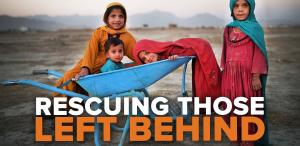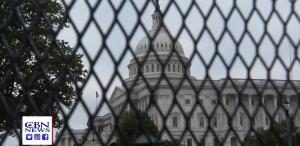Will Pakistan Go the Way of Iran?
Pat Robertson interviews John Bolton, former US Ambassador to the UN, on Pakistan's political struggles.
Transcript
The images are all too familiar: A U.S-backed leader unpopular among his people is also facing Islamic radicals at his doorstep. Some say Pakistan 2007 sounds a lot like Iran in 1979.
State of Emergency
When Pakistani President Pervez Musharraf declared a state of emergency earlier this month, he expected it to stabilize his country's chaotic atmosphere. Instead, the opposite occurred. Protests erupted against Musharraf and his government's heavy-handed response has drawn sharp international criticism.
"What the opposition is talking they want agitation. They want to disturb law and order and they want to undermine governance," Musharraf said.
The house arrest of opposition leader Benazir Bhutto and a nationwide media gag order has only added to the backlash. Some compare this to Iran's Islamic Revolution in 1979.
"The longer the U.S. supports it the more chances are Pakistan will go the way Iran went under the Shah, where an unpopular dictator was supported by the Americans," opposition leader Imran Khan said.
'Pakistan Isn't Iran'
Walid Phares of The Foundation for Defense of Democracies says the situation today in Pakistan is different--and even more dangerous.
"Pakistan is nuclear. Iran wasn't," Phares said. "Pakistan is also in a very delicate situation between containing the Taliban in Afghanistan and having a balance of power with India. That's a situation that Iran didn't have."
While Iranians rallied around Ayatollah Khomeini, there is no clear uniting figure in Pakistan. But it does have an important asset that Khomeini lacked: 50 nuclear weapons. That fact isn't lost on terrorist forces gaining influence in the country.
"Today's Taliban inside Pakistan are a world threat. And they are aiming at seizing those nukes. This wasn't the case during the Khomeini time," Phares said.
The Bush administration is urging Musharraf to end the state of emergency and step down as head of Pakistan's military.
Phares said, "The wisest thing we can do at this point in time is to make sure that Musharraf contains the threats, secures the nukes. And on the other hand, commit that he's going back quickly to democracy, hoping that there will be a national unity government."
Musharraf has given the go-ahead for parliamentary elections in January. In the meantime, any hope of a power-sharing coalition between him and Bhutto looks highly unlikely.
Download
Right-click on a link below and choose "Save link as..." to save the file
High Definition - MP4
High Quality - MP4
Low Bandwidth - MP4





